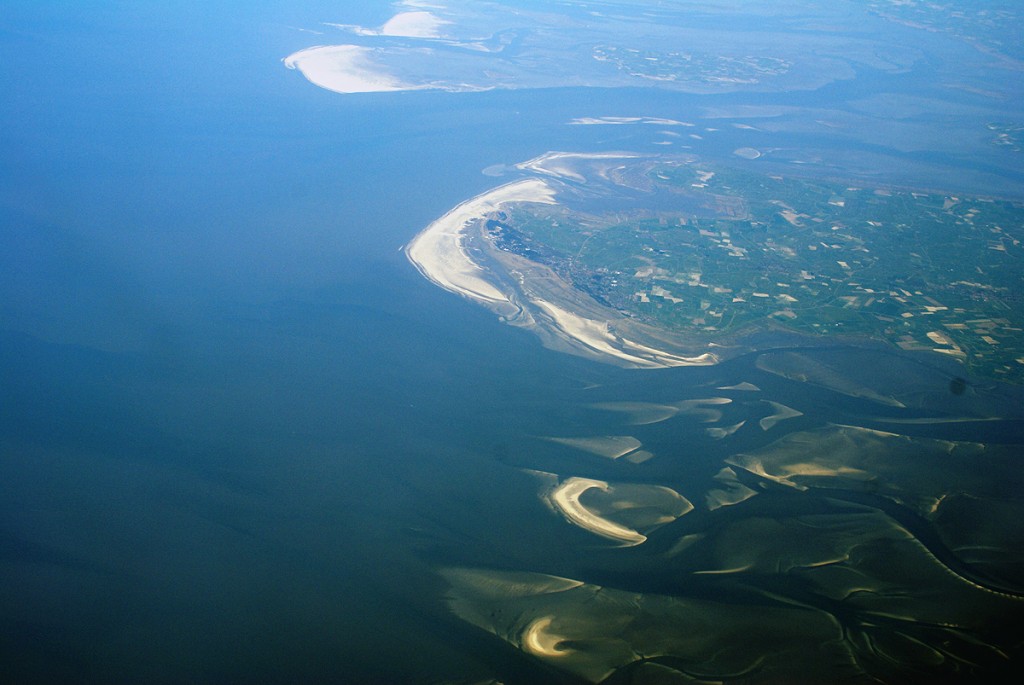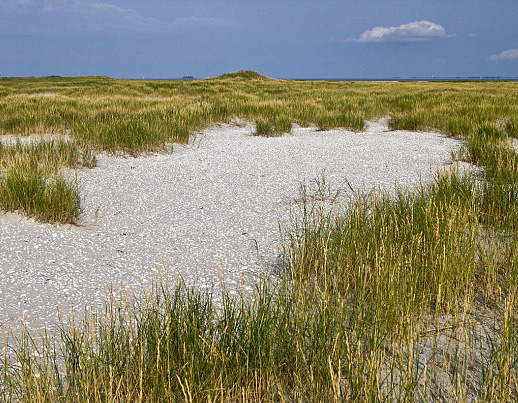Scientists are astounded by the sudden appearance of a vast sandy island off the German coast in the shallow Wadden Sea.
With the modern era’s ability to chart and plot each tiny piece of the Earth’s landmass, one would think that unexpected discoveries would be scarce indeed. It’s doubly surprising that a brand new island the size of 25 football fields has been found not in the remote reaches of the antipodes, but in heavily populated mainland Europe.
The sickle-shaped isle of around 34 acres was discovered in Germany’s middle portion of the Wadden Sea, a narrow coastal wetland that curves downward from Denmark and continues across the Netherlands.
Known in Germany as the Wattenmeer, it is a National Park and protected area enjoyed by nature lovers year-round. In fact, the island was first brought to the attention of park scientists by canoeing visitors.
It’s not unusual for sand banks to accumulate in its shallow waters, but according to local conservationists, it is extraordinarily rare for such bodies to establish themselves as fully-fledged islands.
“The fact that in just a few years a new island is formed is very impressive. For conservationists this is anything but ordinary,” said Detlef Hansen, administrative head of the Wadden Sea National Park.
Despite its recent appearance, the island has already been given a name – Bird Island, as it has already become a favorite roost of thousands of sea gulls, geese, ducks and falcons. Almost 50 varieties of plants, sprouted from seeds carried by winds from all across Europe, have taken root on Bird Island’s sandy surface and given a greater resiliency to its soil.
And it’s certainly in an environment where it needs all the help it can get. Found 16 miles into the sea off Germany’s northernmost state of Schleswig Holstein, the nascent island owes its survival to the sheltering effect of nearby isles, and a lot of luck in avoiding the most severe of North Atlantic storms. If the island has made it this far, it would seem it has a good chance of being a permanent fixture in the Park.
Tourists shouldn’t plan Bird Island holidays just yet, however. Biologist Martin Stock, who works with Germany’s National Park Management, cautioned that even with the benefits of rooting plants like the plentiful grasses, the island is still a tenuous addition to the Wattenmeer. “A strong storm flood could wipe the island out overnight,” he said. “The plants do not have the roots necessary yet to bind the dunes together.”
Read more about this story: Telegraph.co.uk




